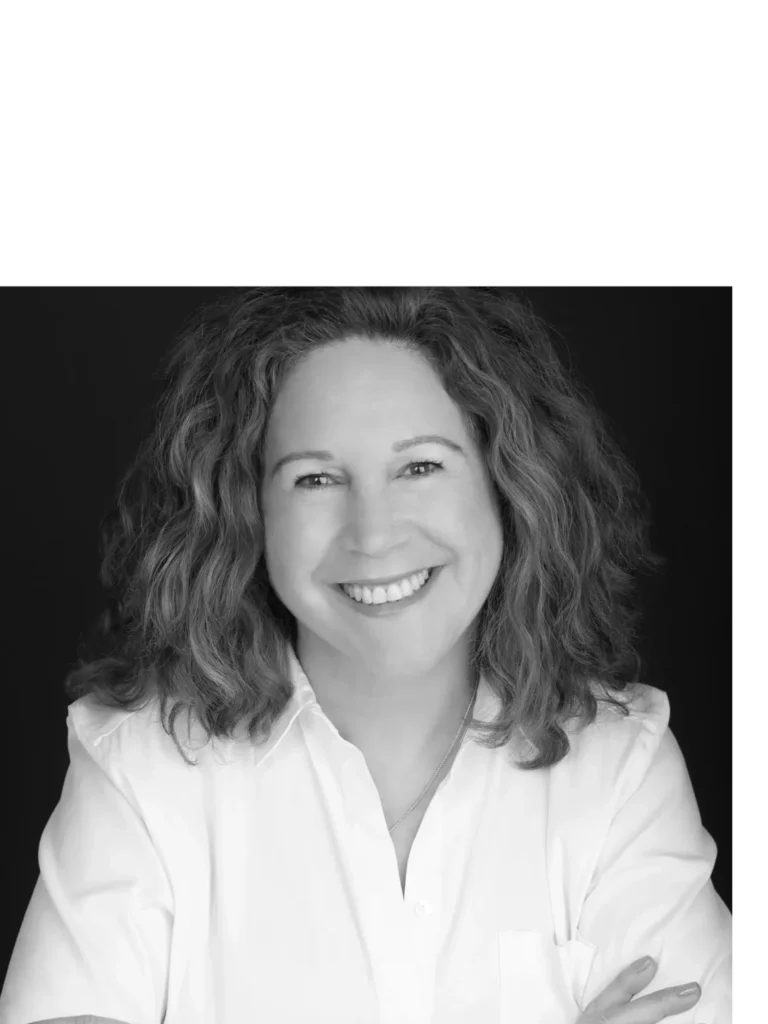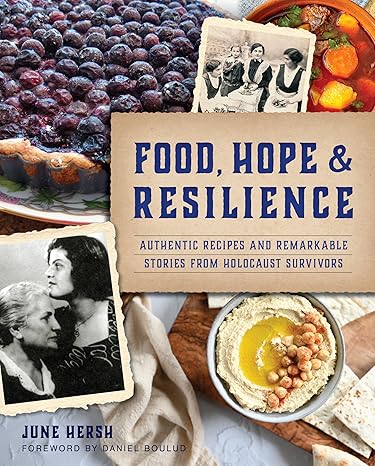How did you first get started in the world of influencing?
At a time when many of my peers were beginning to slow down, I decided to rev up and pursue a new path. After selling our family business, my sister gave me a directive: “We did well; now let’s do good.” I took that as a call to find an endeavor that could be both rewarding and impactful. That’s when I shifted gears and began my food writing career. While I’m not entirely comfortable with the term “influencer,” I strive to share food history, emphasize the importance of bringing tradition to the table, and celebrate culture through cuisine. If what I write influences others, that’s just a bonus.
What motivates you to create content and engage with your audience?
I’m driven by the need to preserve what I call “food memory”—celebrating one’s heritage through stories and food. Without the story, it’s just ingredients. My first project, Recipes Remembered (now titled Food, Hope & Resilience), involved interviewing over 100 Holocaust survivors, retelling their stories, and recreating their recipes. The book was written to benefit the Museum of Jewish Heritage, with all proceeds going to organizations that further Holocaust education. My work aims to honor the legacy of this remarkable community and celebrate the foods they prepare. By sharing content about a survivor’s story, like hiding under the floorboards of a neighbor’s home, I hope to remind readers of the importance of standing up to hate. Food is my vehicle, but motivating people to be upstanders, not bystanders, is what truly drives me.
How do you define success as an influencer?
Success, for me, is if I can encourage one person to learn more, one parent to write a recipe down, or one grandparent to cook with their grandchild. Knowing the “why” behind what we eat excites me, and I want to motivate others to explore their culture and honor their family’s history through food.
Can you share a challenge you’ve faced in your journey as an influencer and how you overcame it?
As a new writer, I needed to make connections that initially seemed off-limits. I needed a publisher who believed in my work, an institution to associate with it, a group of food experts to support it, and an audience to embrace it. I achieved these goals by adopting the mindset that the worst that could happen was someone saying no. Once I jumped that hurdle and understood that success was measured by the “yeses,” not the “nos,” I became pretty fearless.
What strategies do you use to grow your follower base and engagement?
This is an area where I continue to struggle. In my niche world of Jewish food writing, I’m known, but in the broader sense, I’m still gaining traction. I refuse to post just for the sake of posting. My base grows more through personal engagement than online presence. For instance, I was featured on QVC’s popular show In the Kitchen with David, where I sold 6,000 books in just six minutes. That means I reached 6,000 people who might not have otherwise discovered these stories or embraced these recipes. While this didn’t result in gaining 6,000 followers, it did help keep the legacy of Holocaust survivors alive. I also travel across the country, giving book talks, presentations, and food demos to raise awareness and share what I’ve learned. My success is measured in books sold and lives touched, not likes on social media—though I wouldn’t mind a legion of followers on those platforms.
What role do authenticity and transparency play in your content creation process?
When discussing Jewish immigrants or Holocaust survivors, I strive to be an authentic voice. Representing a community that has faced such adversity requires unwavering commitment. Even in my book about yogurt, which has been translated into several languages, I immersed myself in the culture to present an informed perspective. I’ve written three kosher cookbooks, and although I’m not kosher, I respect the discipline and mindfulness associated with it. If you’re not genuine on social media, people will see through it quickly, and your following will dissolve.
How do you handle negative feedback or criticism from your audience?
I’m not as tough as an undercooked brisket, but I’ve developed a thicker skin over time. Recently, a reader criticized a subtitle in my Westchester Magazine article, “Funny you don’t look Jewish.” While I felt her criticism was harsh, I understood her point and agreed that words matter. It’s a tricky time to be a Jewish writer, and while I’m fiercely proud of my culture, I know I can’t please everyone.
How has being an influencer impacted your personal life and relationships?
My friends find my new path exciting, and they support me by attending talks and following my travels. My family has been my biggest booster, especially my husband, who supports me unconditionally, even when a book talk takes us to the middle of nowhere. My grandchildren think I’m famous—my youngest granddaughter, in particular, believes she’ll be a TV star by association. While this journey hasn’t drastically changed my personal life, it has provided me with some good stories to share. One of the perks is meeting others in the field, like Chef Alon Shaya. Our connection led to a collaboration on a book for HarperCollins, exploring WWII and the Holocaust through the lens of food.
What advice would you give to someone aspiring to become an influencer?
Don’t try to influence—focus on being an authentic voice for what you believe in. People can tell when someone is genuine and has conviction, rather than just seeking likes and followers. Determine what your goals are. Mine are simple: I want people to respect the connection between food and family, ask questions at the dinner table, and discover something new. I want that kugel to tell a story that bridges generations.
For those at a certain stage in life, it’s important to choose your “busy.” My busy was built on philanthropy and giving back. That’s why all proceeds from my books have gone to charity. I found my busy through food writing, exploring food history, and celebrating family. Everyone’s busy is important—I just hope mine has helped preserve the legacy of Holocaust survivors, encouraged new generations to explore legacy recipes, and inspired others to stand up, speak up, and make a difference.
June Hersh is a former teacher and businesswoman who began her food writing career after retiring in 2004. She writes cookbooks with a charitable Flavor. That’s because I donate the proceeds from my books to organizations related to the subject matter of the book. This way, when you purchase a copy of any of my books, you have found the perfect way to Eat Well-Do Good
She is the author of The Kosher Carnivore (St. Martin’s Press, September 2011), a primer on how to cook kosher meat and poultry; Yoghurt: A Global History (Reaktion Books, March 2021) and Iconic New York Jewish Food: A History and Guide with Recipes (The History Press, February 2023). Hersh served as editor and interviewer for Still Here: Inspiration from Survivors and Liberators of the Holocaust (www.stillherebook.com). Her books are available on her website (www.junehersh.com) and other online booksellers.


